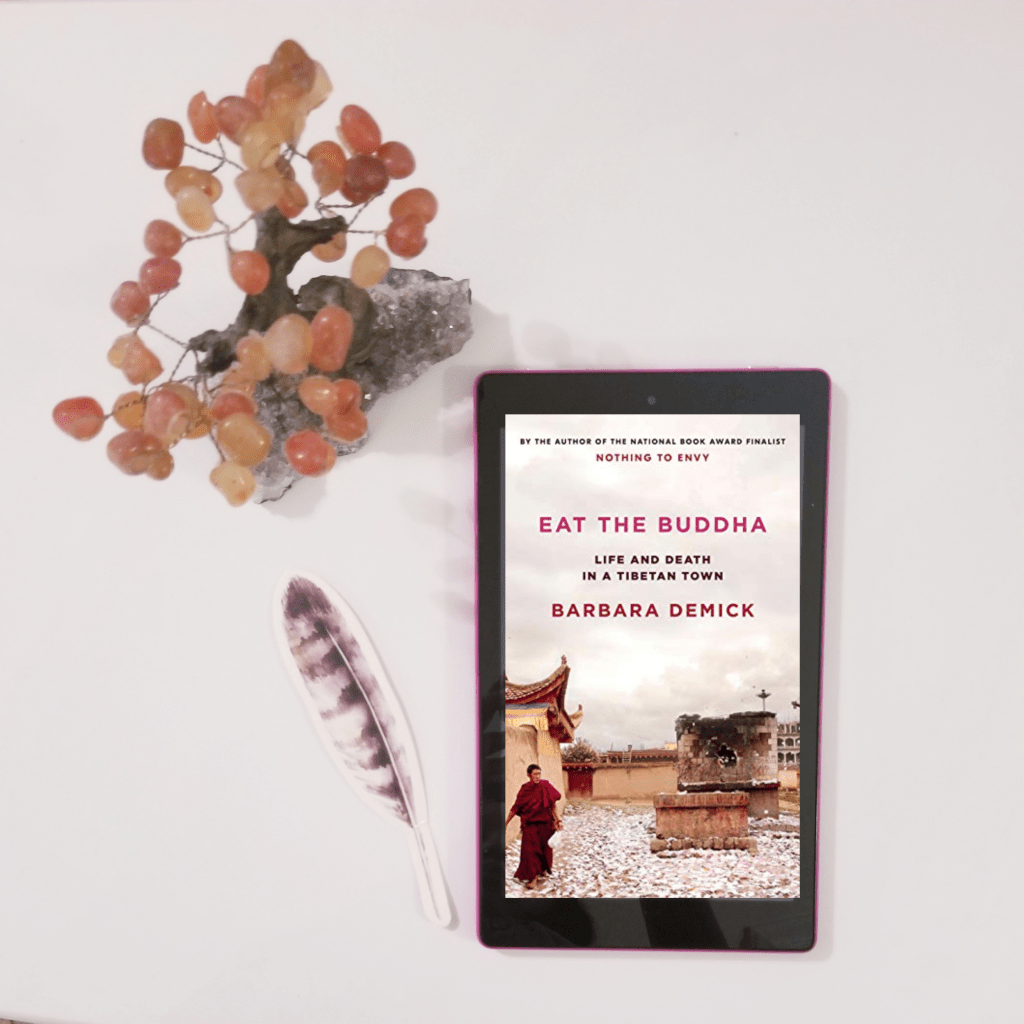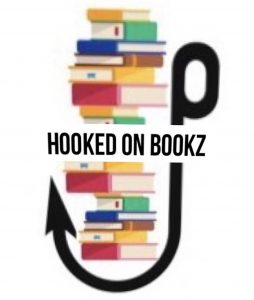
Title/Author: Eat the Buddha by Barbara Demick
Publisher: Random House
Pages: 336
In a nutshell (Publisher):
“You simply cannot understand China without reading Barbara Demick on Tibet.”—Evan Osnos, author of Age of Ambition
Just as she did with North Korea, award-winning journalist Barbara Demick explores one of the most hidden corners of the world. She tells the story of a Tibetan town perched eleven thousand feet above sea level that is one of the most difficult places in all of China for foreigners to visit. Ngaba was one of the first places where the Tibetans and the Chinese Communists encountered one another. In the 1930s, Mao Zedong’s Red Army fled into the Tibetan plateau to escape their adversaries in the Chinese Civil War. By the time the soldiers reached Ngaba, they were so hungry that they looted monasteries and ate religious statues made of flour and butter—to Tibetans, it was as if they were eating the Buddha. Their experiences would make Ngaba one of the engines of Tibetan resistance for decades to come, culminating in shocking acts of self-immolation.
Eat the Buddha spans decades of modern Tibetan and Chinese history, as told through the private lives of Demick’s subjects, among them a princess whose family is wiped out during the Cultural Revolution, a young Tibetan nomad who becomes radicalized in the storied monastery of Kirti, an upwardly mobile entrepreneur who falls in love with a Chinese woman, a poet and intellectual who risks everything to voice his resistance, and a Tibetan schoolgirl forced to choose at an early age between her family and the elusive lure of Chinese money. All of them face the same dilemma: Do they resist the Chinese, or do they join them? Do they adhere to Buddhist teachings of compassion and nonviolence, or do they fight?
Illuminating a culture that has long been romanticized by Westerners as deeply spiritual and peaceful, Demick reveals what it is really like to be a Tibetan in the twenty-first century, trying to preserve one’s culture, faith, and language against the depredations of a seemingly unstoppable, technologically all-seeing superpower. Her depiction is nuanced, unvarnished, and at times shocking.
My thoughts:
“For centuries, Tibet was known as a hermit kingdom. Its charms were hidden by the natural barrier of the Himalayas to its west and by a reclusive theocratic government ruled by a succession of Dalai Lamas…Nowadays it is not the Tibetans shutting the door, but a paranoid Chinese Communist Party. China has ruled Tibet since 1950, and is a most unwelcoming gatekeeper.”
When the Communists fled farther west into China (The Long March) to escape the Chinese Civil War, they were lacking of food, and by sheer coincidence found Buddha statues made of flour that tasted sweet, then started consuming them whenever they found any, hence the title ‘Eat the Buddha’.
‘Eat The Buddha’ chronicles the lives and struggles of Tibetans who lived under the ruling of China since 1950, when Mao proclaimed the People Republic of China. This book is the result of thorough research, and the various interviews Demick conducted with Tibetans from a small town called Aba (Ngaba) at the eastern edge of the Tibetan plateau, for over 3 years.
We start from the year 1958 and end with the present, where some of the interviewees are currently residing in Dharamsala, India, now home of some exiles like Gonpo and Delek, but some of them have moved back to China, hoping to lead an ‘easier’ life than the one they had in India.
The book opens to the story of Gonpo, the last princess of mei Kingdom, when her palace was being seized and her entire family was being forced out of their home. Gonpo was only 7 years old then. Her father, the king, died a tragic death while looking for her mother. Gonpo is now living in exile in India and had been separated from her family ever since she left for India in 1989. Now they see each other once or twice a year.
In the following chapters, we get to meet other Tibetans like Delek, now a ‘self-styled historian’ whose original research was focused on the events of the 20th century, Dongtuk, a kid born out of wedlock and whose half-brother self-immolated, and Tsegyam, an aspiring poet, who at 19 became a vice principal.
Delek, at 9, witnessed his own grandparents being beaten severely; his grandmother’s hair being yanked out and his grandfather being ‘suspended from the ceiling, tangled in ropes.’ Their home filled with smoke, all their literature and Buddhist manuscripts, art pieces and holy books burned to ashes.
Dongtuk who, from a young age, knew he wanted to be a monk and loved every moment he spent at Kirti monastry. But in March 2008, Chinese authorities put the monastery under a siege. Everything was blocked, even telephone signals and food supply was cut, as though trying to starve the monks into submission after their demonstrations. And soon, closed-circuit television cameras were installed. Nobody knew more people who had self-immolated than Dongtuk. Living in Dharamsala, India now, Dongtuk has started to keep a diary in the hopes of keeping the Tibetan cause alive through his writing.
Tsegyam, while he was working as a teacher, got the opportunity to teach Tibetan reading and writing, which although wasn’t allowed, the authorities weren’t able to monitor either and there weren’t any fixed curriculum. He was accused of counterrevolutionary propaganda for writing messages on prayer flags that express rebellion such as “Free Tibet” “Chinese Out of Tibet” and “Bring Back His Holiness The Dalai Lama”. He was sentenced to jail and was released a year later. Now in India, he was hired as the Dalai Lama’s private secretary.
The author also showed us the Tibetans’ lives, cultures and beliefs that made them known for their peace and non-violent nature. We’ll read of their Monlam festival (The Great Prayer Festival); Losar, the Tibetan New Year; their sky burials (an ecological practice of returning a body to nature without digging the land polluting water, or chopping down trees for cremation); their food like tsampa (made of barley or wheat flour) which is their staple, momos and khapse – treats they serve on special occasions like their New Year; their famous butter lamps for their prayers and meditations; their nomadic life and how some are adapting to a more modernized life.
It was also so interesting to learn about their education at the monasteries where they also hold their Tibetan monastic debates in their own style (with lots of body gestures and clapping! Check out the video below).
This was such an eye-opening read for me, and at times shocking; it was heartbreaking to know how much the Tibetans had to sacrifice just to live in peace, and their struggles seem endless, so much so that the Dalai Lama asked Elie Wiesel during one of his visits to India,
“You wrote about the Jewish people losing a homeland two thousand years ago and how you’re still here. Mine has just lost its homeland, and I know it’s going to be a very long road into exile,” “How did you survive?”
‘Eat the Buddha’ vividly painted the livelihoods of people struggling to find their footing in a country they call home, which keeps robbing them of their identities, freedom and independence, again and again. It was also about how they stood their ground, fought back, rebelled, and self-immolate as a call for the freedom of their people and to bring their Dalai Lama back home. It is, above all, the Tibetans’ story of their long fight to freedom while trying to preserve their culture, beliefs and language.
Definitely going to be one of my top non-fiction reads this year!
Thank you Netgalley and the publisher for providing me a free eARC of this book in exchange for an honest review. All opinions are mine.
Have you read this book? What did you think? If you haven’t, do you intend to? Have you read something similar to this? Please share with me your thoughts!


This sounds really good, I’ve read a couple of books around the subject, but nothing in detail.
LikeLiked by 1 person
Yes this was really good, Rosie. It really opened my eyes!
LikeLike
Holy moly, Jee! Another fantastic, insightful, and eye-opening read! Who would’ve though! Just your revelation regarding the meaning of the title blew my mind for a second hahaha Great review as always! 😀
LikeLiked by 1 person
Thank you, Lashaan! I was so surprised too when I read about it. We do crazy things when we’re famished, to the extent of eating our own kind, right? 😔
LikeLiked by 1 person
Wow, Jee. This sounds heartbreaking but so important to be told. When I get in the right mood to immerse myself into a historical subject or time period, I want to read books like this! Sounds like a real eye opener and so informative!
This really is a great quote to ponder:
“You wrote about the Jewish people losing a homeland two thousand years ago and how you’re still here. Mine has just lost its homeland, and I know it’s going to be a very long road into exile,” “How did you survive?” And shows first hand the loss of hope.
This will go on my tbr, Jee. I am glad to find such great reads through your reviews.
Happy Reading in August 🤗
LikeLiked by 1 person
I love how you help me look at things differently too. Connecting that quote to the loss of hope. He was also maybe hoping that there’s a way out from what they’re going through. Or a way to stay strong. Thank you for your kinda words, Scarlett. I appreciate your time reading and commenting💕
LikeLiked by 1 person
Wow, Jee! This sounds right up my alley. I’d love to learn more about Tibet. I thank you for the lovely review! ♥️
LikeLiked by 1 person
Thank you, Jennifer! And you’re welcome. I really learned a lot from this book too! 💕
LikeLiked by 1 person
Jee, I just sent you a DM on Twitter- no pressure or rush but I wanted you to know it was there. ❤️
LikeLiked by 1 person
That’s awesome! Thank you, Jennifer! I’ll go check 🙂
LikeLike
How fascinating! If I come across this book I will check it out.
LikeLiked by 1 person
This one was really good, NS! I hope you’ll get to check it out:)
LikeLiked by 1 person